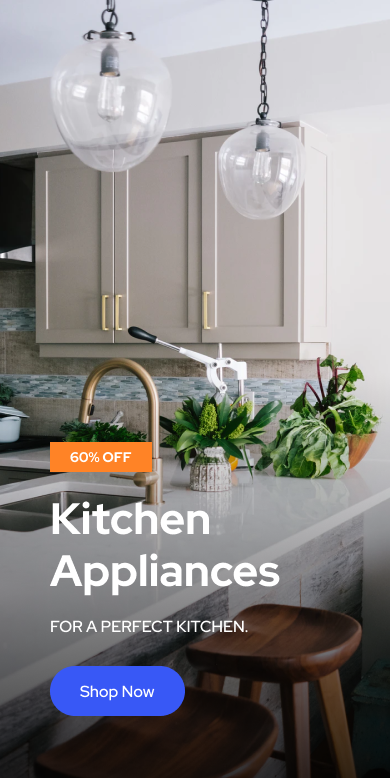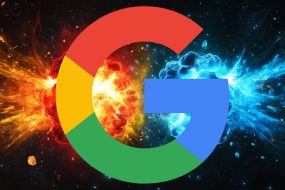
Once brands decide to start a PPC program, they often want to get moving immediately.
However, there are a few things they either haven’t thought of or need a reality check before they’re truly ready to spend money wisely.
When those brands come to our agency, there’s a list of questions I like to ask to help us build a roadmap – and set expectations. (If you’re a brand, it’s a very good idea to ask these internally before you bring on a partner.)
1. What are your goals for a PPC program?
This is a fairly straightforward question that, more often than not, gets an answer like “We want customers,” “Drive sales” or “Boost revenue.”
That’s all well and good, but answers like that lead to a very necessary set of follow-up questions to make sure all sides are on the same page.
Dig deeper: How to create a roadmap for your PPC clients
2. What’s the conversion event that leads to an opportunity (or sale)?
Coming at this from a B2B angle (since ecommerce usually goes right to sales), we’re looking to learn the action that puts users close to the conversion. Something like “request a demo” or “sign up for an audit” or “book a free consultation.”
There are other ways to get people into the funnel with a softer, often content-related offer. Still, it’s good to know the marketing ultimate goal before the lead gets handed off to the business development team.
3. What happens after the first conversion?
This question really helps you identify work to be done before any PPC money can be spent.
If you’re an agency and being held to revenue goals – and you’re being a responsible business partner – you absolutely need to ask this question because much of what happens after the conversion event above will be out of your control.
For B2B/SaaS companies and B2C lead gen companies, it’s what happens after someone takes an action that will either bring good leads through the funnel or not.
This means post-conversion site experience, email follow-ups, lead qualification, expected time for sales to contact leads, etc.
Hiccups at any one of those stages will curtail the business impact of your PPC campaigns.
Even for ecommerce companies bringing in sales, the post-conversion experience is huge.
From fulfillment communication to retention strategies, you’ll usually help the brand identify ways to stretch their PPC dollars farther, LTV-wise, with some work upfront.
4. What’s your tracking set-up?
This is also a big question that, more often than not, identifies some pre-work to do with tagging, tracking, UTM parameters, etc., that will make sure our campaigns are pulling in the right data for attribution purposes.
Clients who haven’t given this much thought yet might need a quick tutorial on the state of cookies and browser-side tracking.
If you see a blue-sky opportunity to build something from scratch, I highly recommend avoiding dependency on third-party cookie tracking and setting up server-side tracking instead to make sure your client is capturing valuable first-party data from the jump.
Dig deeper: Advanced analytics techniques to measure PPC
5. How advanced is your CRM set-up?
Messy CRMs can create significant challenges for PPC teams. These include difficulties with:
- Attribution.
- Tracking the impact on pipeline and revenue.
- Using advanced techniques like offline conversion tracking (OCT).
Without a clean CRM, it’s harder to teach platforms like Google, Meta, and LinkedIn how to target the right users effectively.
Brands with messy or incomplete instances would do all parties a service by addressing their CRM before opening the PPC floodgates.
Get the newsletter search marketers rely on.
6. What’s your ICP?
This question can generate a surprising range of answers – some incredibly specific and backed by rich research, some broad and hypothetical.
Either way, the answer will inform your targeting.
- Too specific and you may want to suggest that the brand consider slightly broader targeting that can help new audiences self-identify.
- Too broad and you’ll want to make sure you’re testing different audiences and creative themes to help the brand narrow in on their core audience.
7. What are your differentiators?
This question is related to the question above and incredibly important to surface.
It will help you understand more about the brand’s competitive positioning, which you can and should use in copy and creative.
8. Are you running an SEO program?
Active SEO campaigns always provide PPC teams with good keyword learnings and even raw data that provides insights into the pain points and benefits top of mind for their ICP.
SEO campaigns can also help PPC teams find content to feature in paid campaigns, whether as site links on Google ads or as pieces for potential top-of-funnel campaigns on paid social.
Dig deeper: How to maximize PPC and SEO data with co-optimization audits
9. Is there existing demand for your product?
For companies with new versions of existing products or startups taking an established idea, product or service forward, non-brand search and competitor search campaigns are solid plays.
But occasionally, a startup will break new ground in an industry or product category with minimal awareness or search volume. (Think GoPro in the early 2010s.)
In these cases, when brands need to focus on demand generation, paid social is an excellent way to build awareness at scale. This is especially true for brand campaigns, which typically avoid the high CPMs associated with bottom-of-the-funnel efforts.
For B2B, that generally starts on LinkedIn, although there may be other platforms to consider depending on the niche.
For B2C and ecommerce, Meta is still the place to start for most brands, although certain industries can tap into thriving communities on TikTok.
10. What’s your budget?
Although we need to make sure the budget is big enough to justify agency costs before anyone signs anything, talking about budget before the fundamentals are in place means you’ll get an answer you can’t act on for a while.
Once we are ready to discuss dollars, we analyze audience size and keyword volume to identify a minimum spend threshold (which varies broadly by industry) that brands must reach to gain traction.
From there, budgeting is a balance between not overspending up front and bringing in enough data to help all sides (including the platform bidding algorithms) learn and iterate quickly.
There will be time to dial in performance, but it’s important to communicate those expectations clearly – brands should almost never expect world-class returns from the first wave of spend.
If you have a brand that comes to you with all of those questions pretty well answered, congrats. The odds are you will get the chance to work with a tremendous internal team to build a great PPC program.
More often than not, though, you’ll find that there’s a lot of work to be done before you can start spending budget responsibly. In that event, work to develop a project plan and timelines so each side has a better understanding of next steps.
Dig deeper: How to manage a paid media budget: Allocation, risk and scaling
Contributing authors are invited to create content for Search Engine Land and are chosen for their expertise and contribution to the search community. Our contributors work under the oversight of the editorial staff and contributions are checked for quality and relevance to our readers. The opinions they express are their own.
#Building #PPC #roadmap #brands #questions














